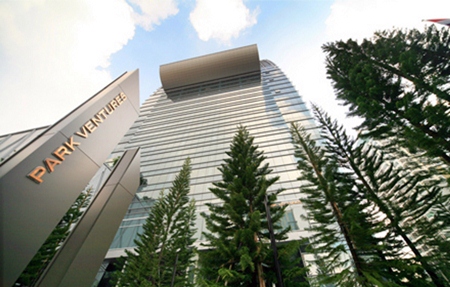Long gone are the days where office tenants had an infinite choice of buildings and space. The office market in Bangkok today has evolved to become a landlord’s market, a big turnaround from less than five years ago post the global crisis, according to Aliwassa Pathnadabutr, managing director of CBRE Thailand, one of the country’s leading property management and service companies.
In fact, the office market has not seen the momentum it has today since before the 1997 Asian crisis, says Aliwassa. “We believe that with the country’s positive macroeconomic outlook, a healthy demand for office space will continue to be sustained,” she says.
 Park Ventures in Bangkok.
Park Ventures in Bangkok.
It is essential for tenants to plan their future space requirements carefully, whether this is for a new office or those seeking to relocate or expand. With a vacancy rate of only 12.1 per cent across the market for both CBD and non-CBD offices, the market is limited in supply.
A combination of factors has led to this present market condition where landlords are in a position of strength. Demand for office space has been growing, future supply is limited and rents are on the rise.
Last year saw the total net-take up being doubled from 2011 levels to 160,000 square metres. The growing demand for office space is driven by an expansion in the manufacturing and service industries from existing tenants, as well as new demand from representative and service offices from overseas companies and banks.
“There has been a noticeable increase in the number of new set ups with smaller space requirements; similar to the market demand seen more than 20 years ago when the economy was rising,” says Aliwassa. “With a positive economic outlook, this trend is likely to continue for the foreseeable future.”
As a result of this growing demand, newly built Grade-A offices that tick all the right boxes in terms of tenants’ requirements such as prime CBD locations and a direct BTS or MTR link have seen a rapid take-up. Park Ventures, for example, is now 90 per cent occupied just over one year from the building’s grand opening.
With a limited future supply of only 438,000sqm in CBD and non-CBD locations in the next three years, the vacancy rate is likely to fall further to below 10 per cent by 2015. Part of the new supply will also be owner occupied, leaving less space for leasing.
One of the factors limiting future supply, particularly in the CBD is high land costs, whereby it is no longer financially feasible to build offices for rent at current freehold land prices.
In a market with limited supply and growing demand, the rents have clearly risen for both CBD and non-CBD offices. In 2012, rents for Grade-A CBD offices rose by nearly 10 per cent, with an achieved record rent of Bt925 per sqm per month at Park Ventures, setting a new market benchmark as well as pushing rents of older Grade-A CBD offices up in line.
While it is clearly a landlord’s market, it is not to say that tenants have no choice or will have to compromise on their space requirements.
A trend that will begin to emerge is pre-leasing in buildings that are still under construction.
CBRE’s Office Agency team has already begun to see the start of this trend and have recently concluded pre-lease transactions.
“Tenants who are able to plan their future needs, particularly those with large space requirements, can in fact benefit from pre-leasing by being able to lock in an attractive rent and their preferred floor and space which is sometimes not available in existing buildings,” concludes Aliwassa.
For more information, go to www.cbre.co.th.




